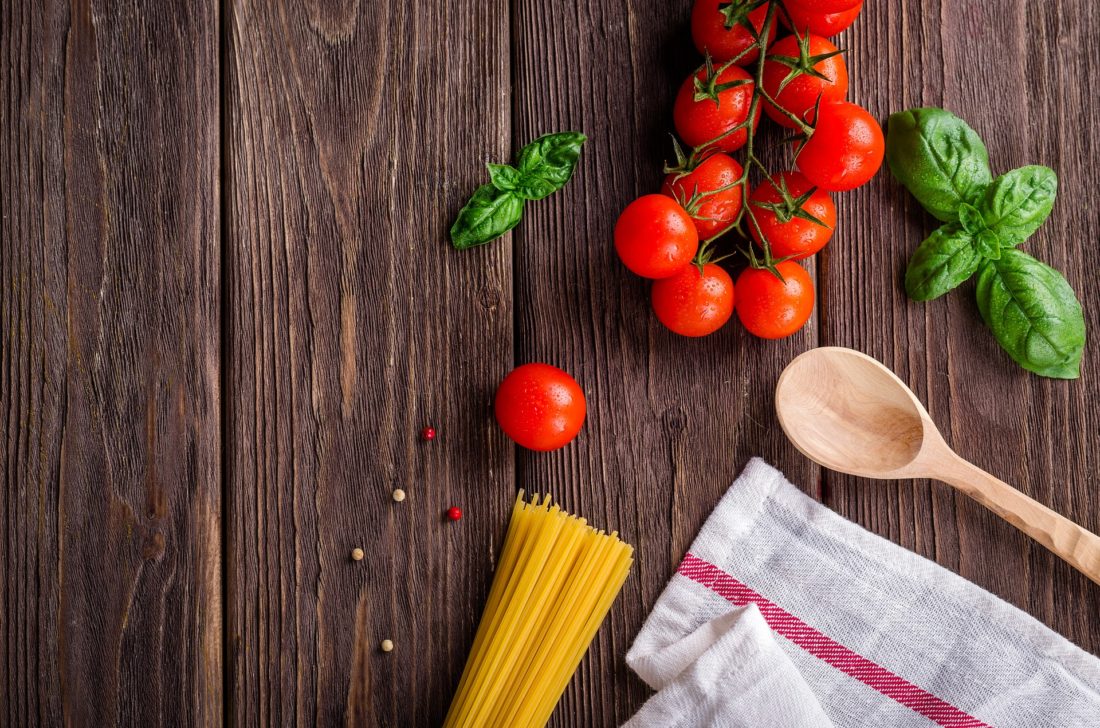4 Reasons To Leave Artificial Ingredients In Food Behind

When was the last time you saw a honey crisp apple with a nutritional label on it? Aside from the sticker that tells you where it came from, you won’t find a nutritional label on fruits and vegetables. You may find a label nearby, but it’s up to you to scout it out.
When you read the nutritional label for fruit, you’ll find sparse information. Packaged food, on the other hand, usually has a list of ingredients several inches long.
According to their own website, the FDA is “responsible for assuring that foods sold in the United States are safe, wholesome and properly labeled.” An apple that gets picked from the tree already meets those requirements. That same apple, however, would get an extended label when turned into applesauce, regardless of whether other ingredients are added.
The mere act of processing food invites manufacturers to add a whole host of ingredients to give it a longer shelf life, and prevent it from sticking to the equipment. These ingredients are often artificial and toxic to the body.
In addition to saving on healthcare costs, here are four good reasons to leave these artificial ingredients behind for good:
1. Some ingredients are toxic chemicals
Between preservatives, artificial flavors and colors, and synthetic trans fats, there’s a mighty cocktail of chemicals floating around in your food. Some people are more sensitive to these chemicals than others, but many people are chronically ill and don’t know it’s because of the food they’re eating.
The human body wasn’t designed to process toxic chemicals in large quantities. In small doses, the body can handle toxins and eliminate them through the liver. If, however, those small doses are consumed on a regular basis, the liver will be overloaded with toxicity and the body will suffer.
Most of these chemicals are found in packaged foods, due to the extended shelf life necessary to stock the stores. However, giving up artificial ingredients in food doesn’t mean giving up packaged food completely. Many food manufacturers produce frozen and fresh packaged food with organic and natural ingredients.
Beetnik Foods, for example, makes frozen meals with organic ingredients similar to what you’d expect to find at a healthy restaurant. Grass-fed beef, coconut rice, zucchini noodles, and sweet potatoes are just some of the ingredients you’ll find in their meals.
The best choice is to cook your meals from scratch, but in today’s busy world, that’s not always possible.
2. Artificial sweeteners cause weight gain
Dr. Mercola reports that artificial sweeteners lead to weight gain for two reasons. First, the taste of sweetness enhances appetite, causing people to overeat and indulge in the wrong foods.
The second cause of weight gain is most prominently demonstrated in the consumption of aspartame. Aspartame, a known neurotoxin, creates a by-product called phenylalanine that blocks the activity of the gut enzyme alkaline phosphatase (IAT). This gut enzyme has been shown to prevent metabolic disorder, and when its activity is blocked, weight gain occurs.
Sucralose, another neurotoxin, also damages the body in ways that cause weight gain. Dr. Mercola also discusses the research that shows sucralose destroys up to 50% of your beneficial gut flora. Sugar also destroys gut bacteria but not as much as sucralose.
3. Artificial ingredients alter cellular communication
Another important point made by Dr. Mercola in the article linked above is that free glutamic acid makes up 78% of MSG. He cautions that free glutamic acid “is the same neurotransmitter that your brain, nervous system, eyes, pancreas and other organs use to initiate certain processes in your body.” And, “Although the US Food and Drug Administration (FDA) continues to claim that consuming MSG in food does not cause these ill effects, many other experts say otherwise.”
4. Many ingredients are banned across the world (except the US)
In the U.S., a mountain of toxic ingredients are added to food; ingredients that are banned in other countries. For example, azodicarbonamide. This ingredient is considered “generally recognized as safe” by the FDA. It’s used to bleach ingredients in bread and pastries. It’s the reason store bought bread doesn’t easily mold and stays soft.
Singapore will put a food manufacturer in jail for 15 years with a $450,000 fine for using azodicarbonamide in food. In the U.S., however, McDonald’s is just one food manufacturer regularly using this ingredient.
Although McDonald’s has a reputation for being junk food in the U.S., if you purchased a hamburger from McDonald’s outside the US, you’d probably be eating a healthier burger.









